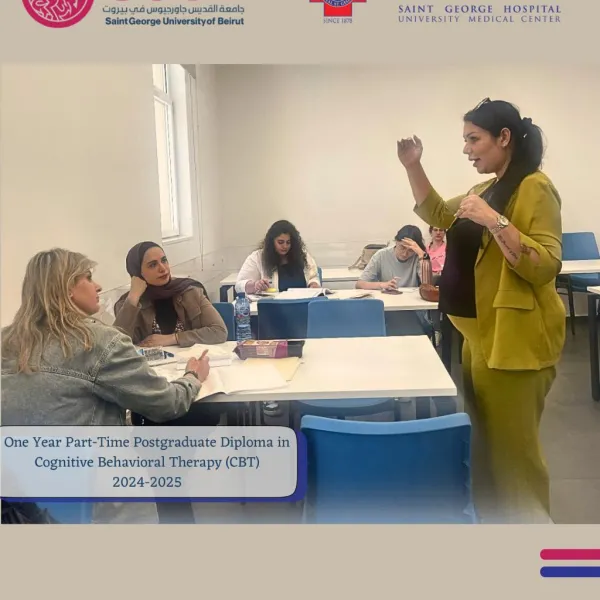Mental Health Outcomes in Lebanon After COVID-19, Economic Collapse, and the Beirut Blast: National Data from IDRAAC
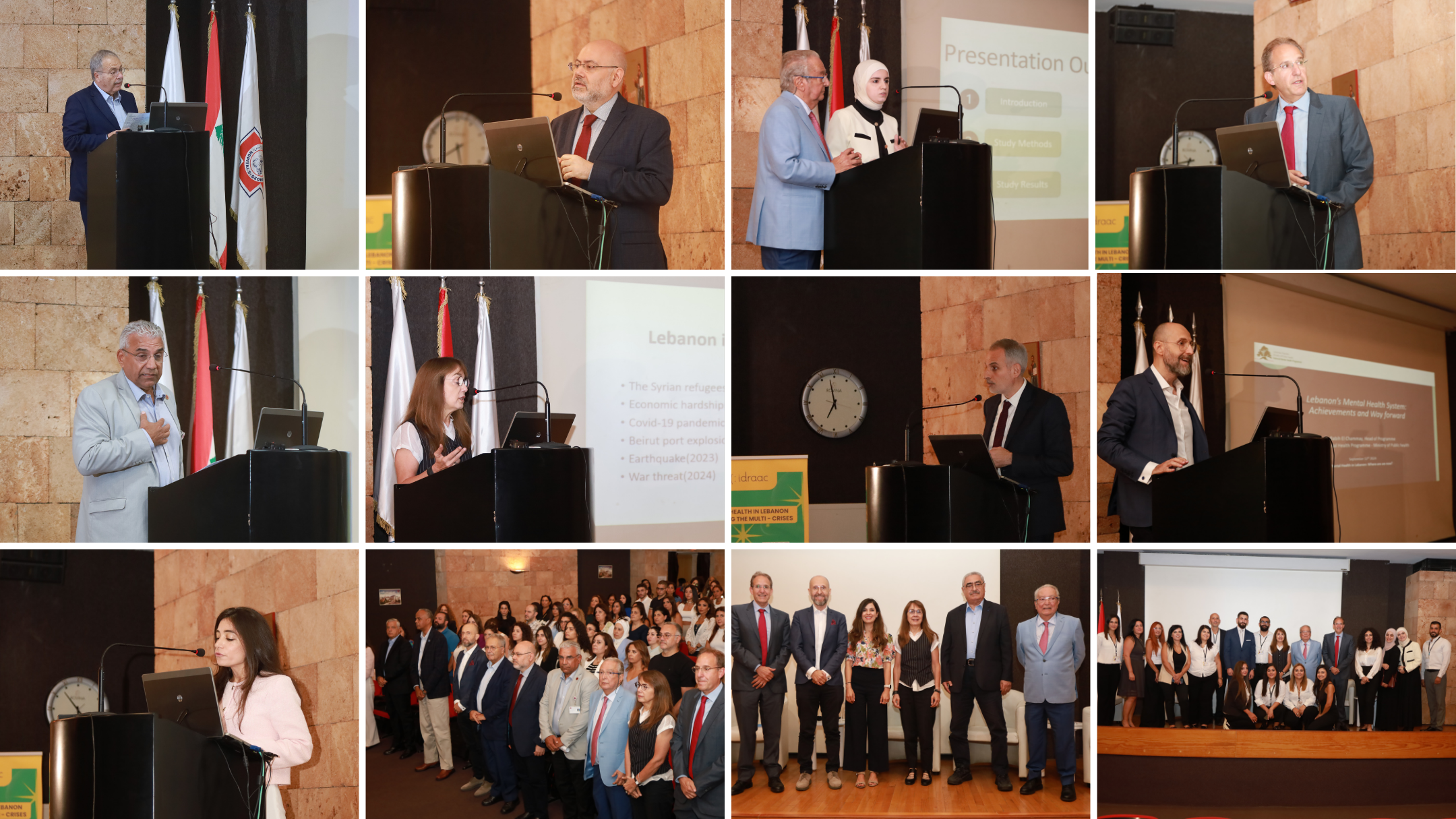
On September 12, 2024, IDRAAC hosted a national conference under the title “Where Are We Now? Mental Health in Lebanon After Multiple Crises”, under the patronage of Lebanon’s Minister of Public Health, Dr. Firas Abiad. Held at Saint George University Theatre in Ashrafieh, the conference gathered leading voices in mental health, government officials, and academics to shed light on Lebanon’s mental health crisis, guided by IDRAAC’s latest data.
National Study Findings: Mental Health in Post-Crisis Lebanon
Professor Elie Karam, President of IDRAAC, presented results from a series of national studies carried out by IDRAAC in collaboration with institutions such as Harvard University and Ipsos Lebanon.
Key Finding 1: First National Mental Health Study in the Arab World
Conducted on a representative sample of 2,857 Lebanese adults over the age of 18, the study revealed that:
17% met the criteria for at least one mental health disorder in the past 12 months (DSM-IV).
Of these, 27% were classified as severe and 36% as moderate.
Nearly 50% had a history of war-related traumatic experiences.
Exposure to war events was significantly associated with increased rates of mood, anxiety, and impulse-control disorders.
Alarmingly, only 10.9% of those diagnosed received treatment, with 85% being treated in the general medical or mental health system. The remainder sought help from religious or spiritual counselors, herbalists, or fortune tellers.
Key Finding 2: Post-2020 Crisis Data
A follow-up study conducted between July and September 2022 analyzed the mental health landscape following the Beirut Port explosion, the economic collapse, and the COVID-19 pandemic. Among 1,000 Lebanese surveyed nationwide: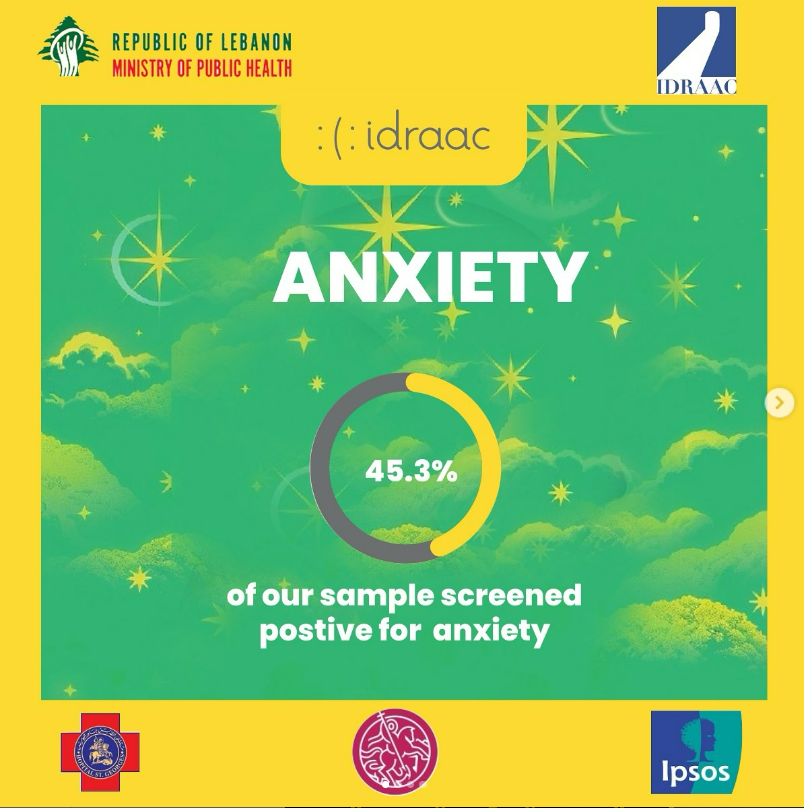
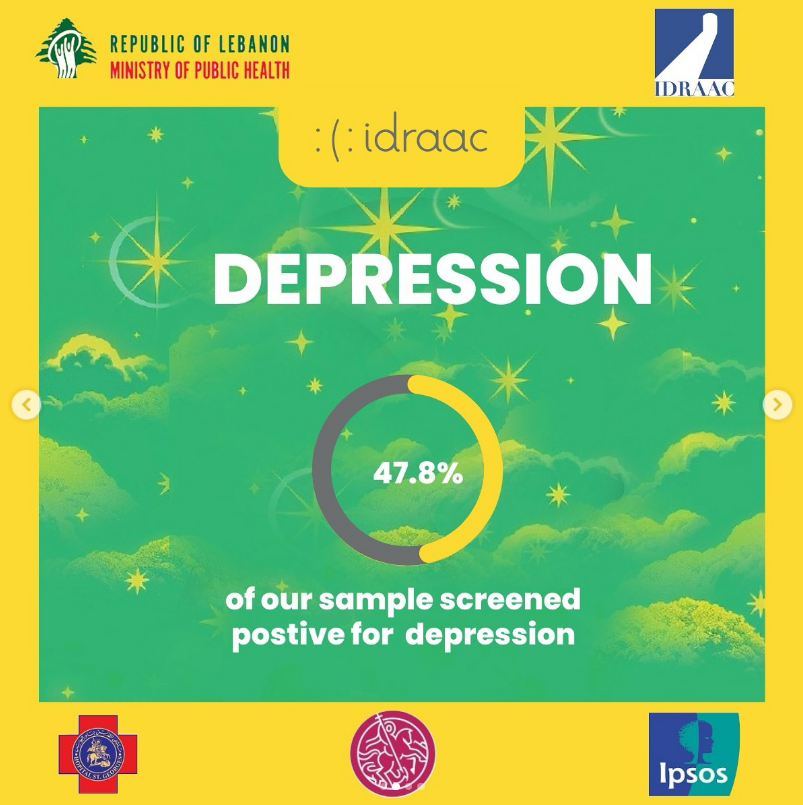
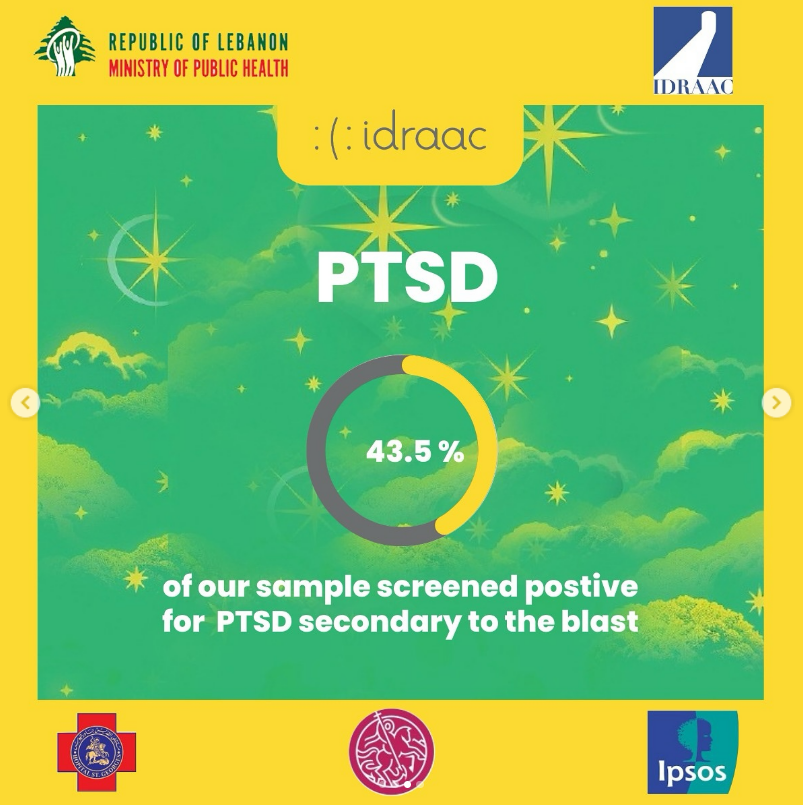
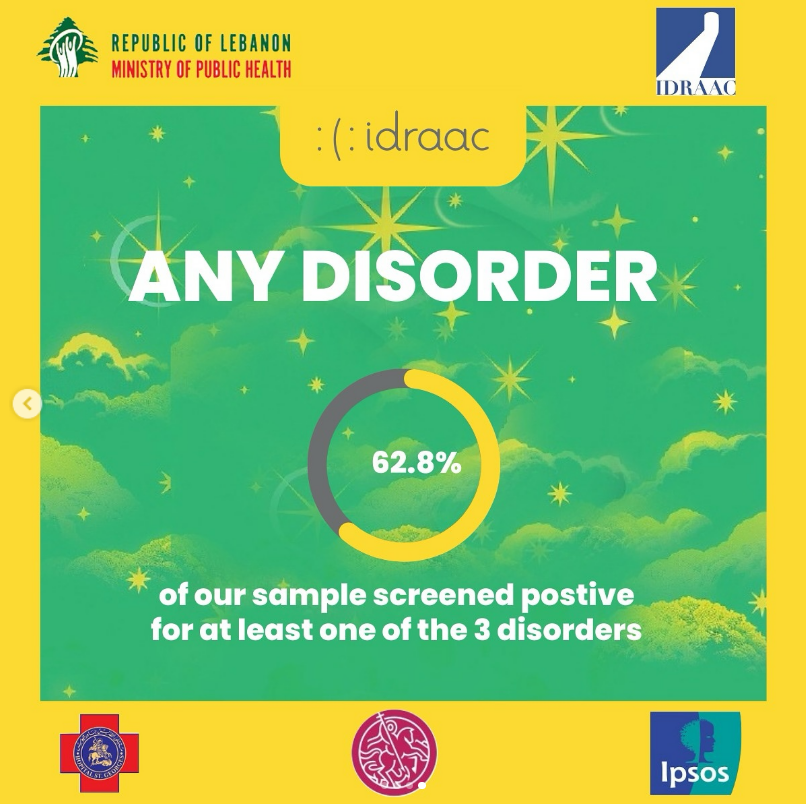
These numbers indicate a mental health emergency of national proportions.
Dr. Karam emphasized the correlation between financial decline and psychological disorders, noting:
The North of Lebanon showed the highest prevalence of mental health issues.
Mount Lebanon had the lowest.
Negative expectations about healthcare quality were linked to increased depressive symptoms.
Key Finding 3: Vulnerable Populations
A third IDRAAC-led study focused on marginalized populations, including refugees and impoverished local communities. Based on a sample of 1,249 individuals:
68.48% experienced anxiety (rising to 80.26% among youth)
79.95% showed signs of depression (with 63.44% among youth)
89.7% were either at risk of or suffering from malnutrition
76.5% had mobility issues; 76.2% experienced vision problems; 61.8% had hearing issues
Being non-Lebanese was identified as a major risk factor for depression. These findings strongly outpace previous studies and underscore the depth of the mental health crisis in Lebanon’s vulnerable communities.
Broader Reflections from Experts and Stakeholders
Minister of Health, Dr. Firas Abiad
Dr. Abiad emphasized the importance of data in shaping effective mental health policy:
“Scientific studies like those conducted by IDRAAC help us allocate our limited resources wisely. With repeated crises, Lebanese resilience is under strain. Everyone now knows someone affected by psychological distress.”
Former Minister Tarek Mitri, President of Saint George University in Beirut
Mitri praised IDRAAC’s ongoing scientific contributions:
“Their data doesn’t just describe disorders; it helps illuminate deeper societal wounds. The Lebanese are often seen as resilient, but that perception must not minimize the gravity of these issues.”
Dr. Fadi Maalouf, Head of Psychiatry at AUBMC
Dr. Maalouf presented alarming findings on youth mental health in Lebanon:
In a nationally representative sample of children and adolescents aged 5–17, 1 in 3 screened positive for a psychiatric disorder.
Only 5% of those affected had received professional help.
The main barriers were cost (64%) and lack of available services (16%).
Socioeconomic and educational disparities, particularly among larger families and those in Greater Beirut, significantly limited access to care.
Dr. George Karam, Executive Director of IDRAAC
Dr. Karam highlighted the cumulative impact of national crises on mental health:
“The recent economic collapse, COVID-19, and Beirut blast have disproportionately affected vulnerable populations. Without urgent policy action, mental health in these communities will continue to deteriorate.”
Building Resilience for the Future
Dr. Aimee Karam, Chair of Clinical Psychology at Saint George Hospital University Medical Center and a founding member of IDRAAC, outlined strategies to build psychological resilience at the national level:
- Prioritized community involvement, skills development, and cross-sector collaboration.
- Advocated for scalable interventions tailored to Lebanon’s socioeconomic and cultural context.
Stressed the importance of tracking outcomes and evaluating impact to ensure long-term sustainability.
A Decade of National Mental Health Policy
To close the conference, Dr. Rabih El Chammay, Head of the National Mental Health Programme at the Ministry of Public Health, reflected on 10 years of progress:
“We’ve made strides in laws, governance, community-based mental health services, and digital interventions. Studies like IDRAAC’s guide the way forward by identifying gaps and setting priorities.”
To learn more about IDRAAC’s research or support its mission, visit www.idraac.org.
Conclusion:
The 2024 IDRAAC conference highlighted one key message: Mental health in Lebanon is in crisis—and we now have the numbers to prove it. IDRAAC’s comprehensive research serves as both a wake-up call and a roadmap. The data demands immediate policy responses, increased funding, stronger partnerships, and a commitment to delivering accessible, equitable mental health services to all.
To learn more about IDRAAC’s research or support its mission, visit www.idraac.org.


